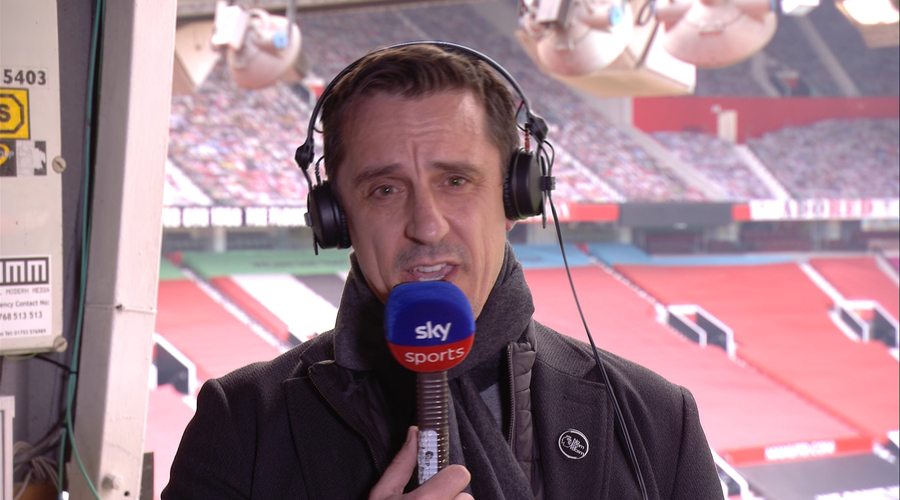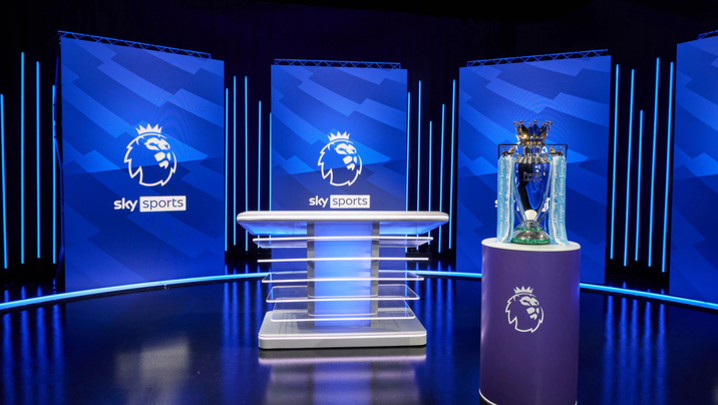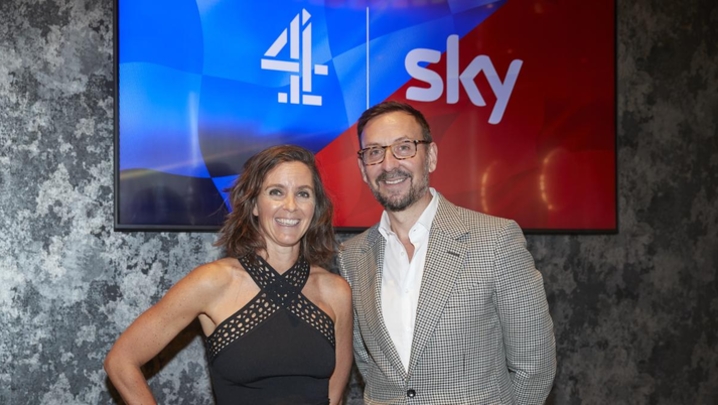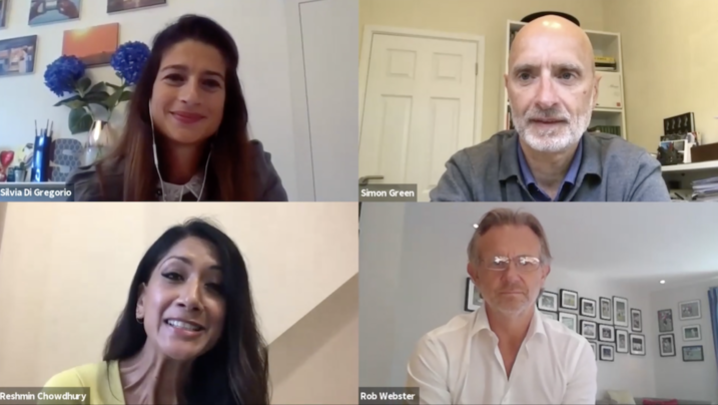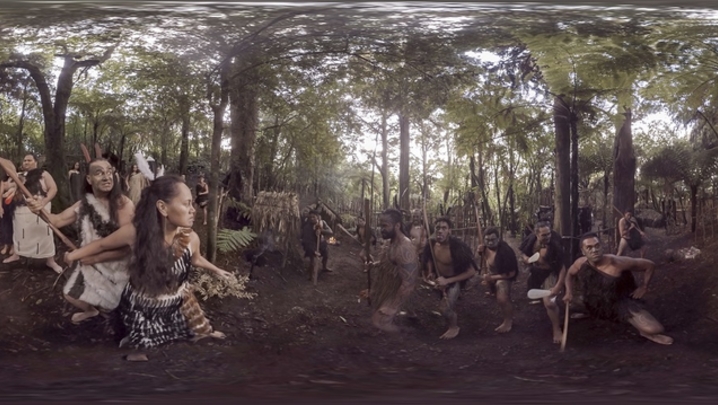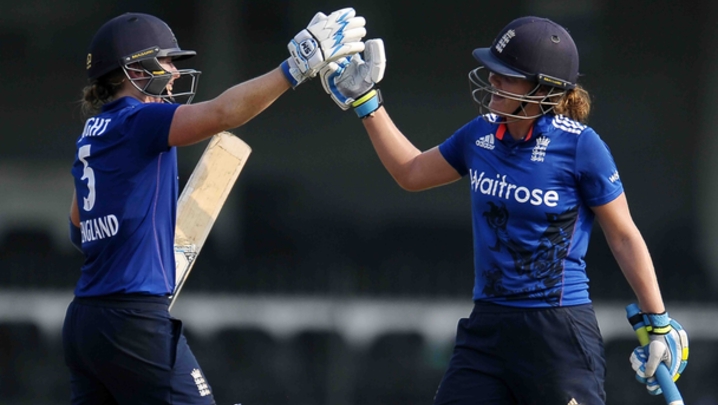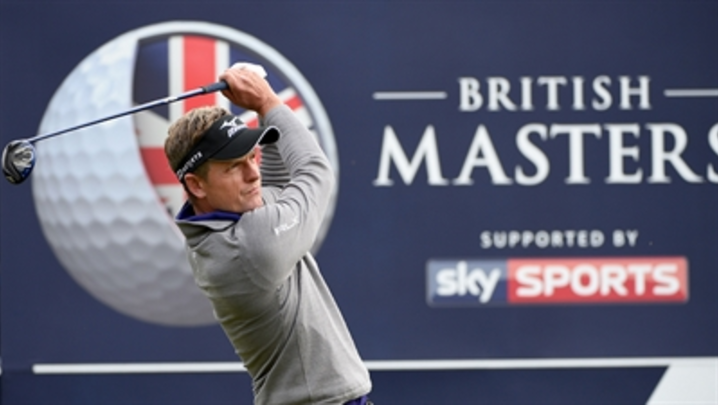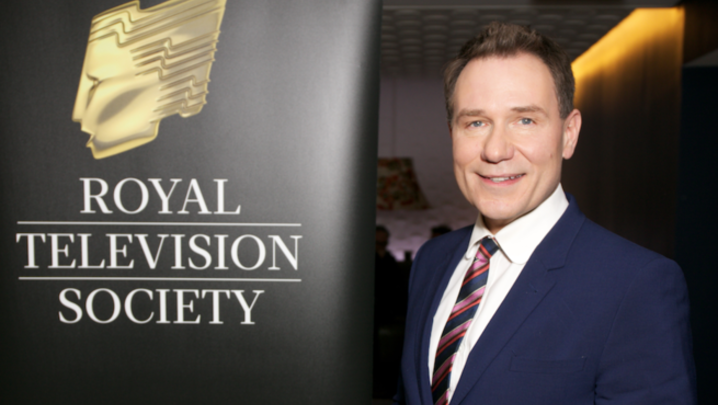“Sorry,” says a gleeful Gary Neville, apologising for being on his phone as he joins the call, “I’m just getting bollocked by a City fan!”
It’s the day after Sky Sports’ Monday Night Football and alongside fellow lead pundit Jamie Carragher, Neville had spent one of the programme’s pre-match segments discussing club ownership in light of Chelsea’s Roman Abramovich problem. It turns out not everyone appreciated his U-turn on the issue, arguing now that all clubs owned by states should be called into question, including Manchester City. But when it’s your job to give your opinion on debates fuelled by the fiercest of club loyalties, bollockings are par for the course.
A Sky Sports stalwart, Neville has been regularly presenting and co-commentating on the channel’s football coverage ever since he hung up his boots in 2011. Viewed as one of Manchester United’s most pugnacious partisans, there were doubts about his suitability for the job. But he quickly put those doubts to rest with his refreshingly detailed analysis, for which he recently completed a hattrick of RTS Programme Awards.
When we speak, he was set to cover five games in six days up and down the country - a strenuous schedule but the mark of a man still very much in love with the game. Indeed for him, “it’s an absolute dream of a week.”
Neville first agreed to a three year position on Sky Sports’ punditry panel about a year and a half before he retired from professional football. There was no mention of Monday Night Football; Richard Keys and Andy Gray had made the show their own.
But halfway through Neville’s last season, Keys and Gray were sacked for making sexist remarks on set, leaving two major gaps in Sky Sports’ line-up. In the close season, the Managing Director of Sky Sports at the time, Barney Francis, and his deputy Andy Melvin (who Neville describes as a “tough, Scottish, hardened TV executive”) informed Neville that he would be “doing everything." That meant all of the cold commentary, punditry on Saturday and Sunday games, and, crucially, Monday Night Football. “Straight away I said: not a chance.”
Fresh out the game and lacking presenting experience, Neville was hesitant. He often refers to Monday Night Football as “the toughest four hours in football television,” made even tougher back then with just the one pundit fielding every single question.
Gray had left some big shoes to fill. “But [Melvin] basically said: ‘I’m sorry son, I’m not asking you, I’m telling you.’ And I’d been used to being told what to do by a tough Scotsman [Sir Alex Ferguson].”
The first Monday Night Football was in just four weeks’ time, so Sky sent a full-size replica of the show’s touchscreen to his house for some cramming. He and his co-host-to-be Ed Chamberlain also did a mock broadcast, but no amount of preparation could settle his nerves.
“The big moments in my life,” says Neville, “are probably my driving test, my first game for the youth team, my first game for the first team and my first game in a World Cup. And I can honestly say that I don't think I've ever been as nervous in my life as I was for that first Monday Night Football.”
Between all the fidgeting, lip licking, and stilted banter with post-match interviewee Roberto Mancini (all of which you can see in the brutally honest reaction video Neville recorded for Sky Sports Football’s YouTube channel), you could tell. But the quality of his analysis shone through the awkwardness.
It took eight months of trial and error before he began to feel comfortable. Although looking back he says he couldn’t have had a better year to report on in terms of “incredible moments,” namechecking his famous “goalgasm” when commentating on Fernando Torres’ goal against Barcelona to send Chelsea through to the Champions League Final, and Sergio Aguero’s last-gasp Premier League title winner.

Neville was always adamant that after three years of Monday Night Football he would hand over the show to the next pundit, but when the time came, he says he wasn’t ready to let go. He realised, however, that the programme needed change. Perhaps taking a page out of his old manager Sir Alex Ferguson’s coaching manual (Ferguson believed in a four-year life cycle for a successful team), Neville reiterates throughout our interview his belief in the need for the programme to evolve every four years. “It can’t become something that people get used to,” he says.
He still remembers the call from the Sky Sports producer alerting him to the battle of the broadcasters for Jamie Carragher’s signature. Liverpool’s vice-captain had just retired and was on the cusp of signing for BT Sports, but he agreed to come to Sky if given a part in Monday Night Football. It was down to Neville, one of his fiercest on-field rivals, to give the green light, but he says he didn’t even hesitate. “I said: don’t let him go to BT, he'll be excellent at the job. He is an absolute football nut.”
Carragher joined Sky Sports for the 2013-14 season and quickly struck up an effective, if unlikely, partnership with Neville, which he likens to “a cocktail that you wouldn’t ordinarily put together.
“The dynamic changed, the interaction changed, the comedy factor, the rivalry factor - it was all there. It was like an explosion.” And it had viewers rapt.
Perhaps emboldened by the success of Neville and Carragher’s fiery double-act, Sky Sports has since cultivated its image as football’s ‘HEATED DEBATE’ chamber, with similarly titled clips of the on-air disputes often baiting millions of clicks. Case in point: Roy Keane and Carragher’s increasingly high-pitched Ronaldo row, which has racked up over 3 million YouTube views at the time of writing.
I’d always wondered if any of the debates had ever boiled over, but Neville assures me that although they might continue into the break or after the show, they would never carry over into the next.
“I walked off the Manchester derby set last week having had a debate with Micah Richards and Roy Keane and we all walked back to our cars together. Me and Roy with our tails between our legs because we’d just been beaten 4-1 and Micah singing and dancing with the City fans that were still there. But that’s how it goes.”
“The sad thing about football is that without something negative happening, you don’t get the best punditry,” says Neville. “I say to Carra[gher] sometimes that the best Monday Night Footballs are when you’re hovering over the carcass of a football team.” Carcasses, he recalls fondly, like the Liverpool team that lost the Premier League on a Monday Night Football against Crystal Palace in 2014. “[Carragher’s] ranting alongside me, I’m hard chuckling... One of the best Monday Night Footballs you’ll ever see.”
Sunday 18 April 2021 was, for the most part, says Neville, “a pretty uninspiring day.” Lockdown had emptied all stadiums and drained them of atmosphere, and Manchester United versus Burnley was proving uneventful. Commentating at the time, he admits, was “pretty drab without fans. We were trying to put a brave face on it.”
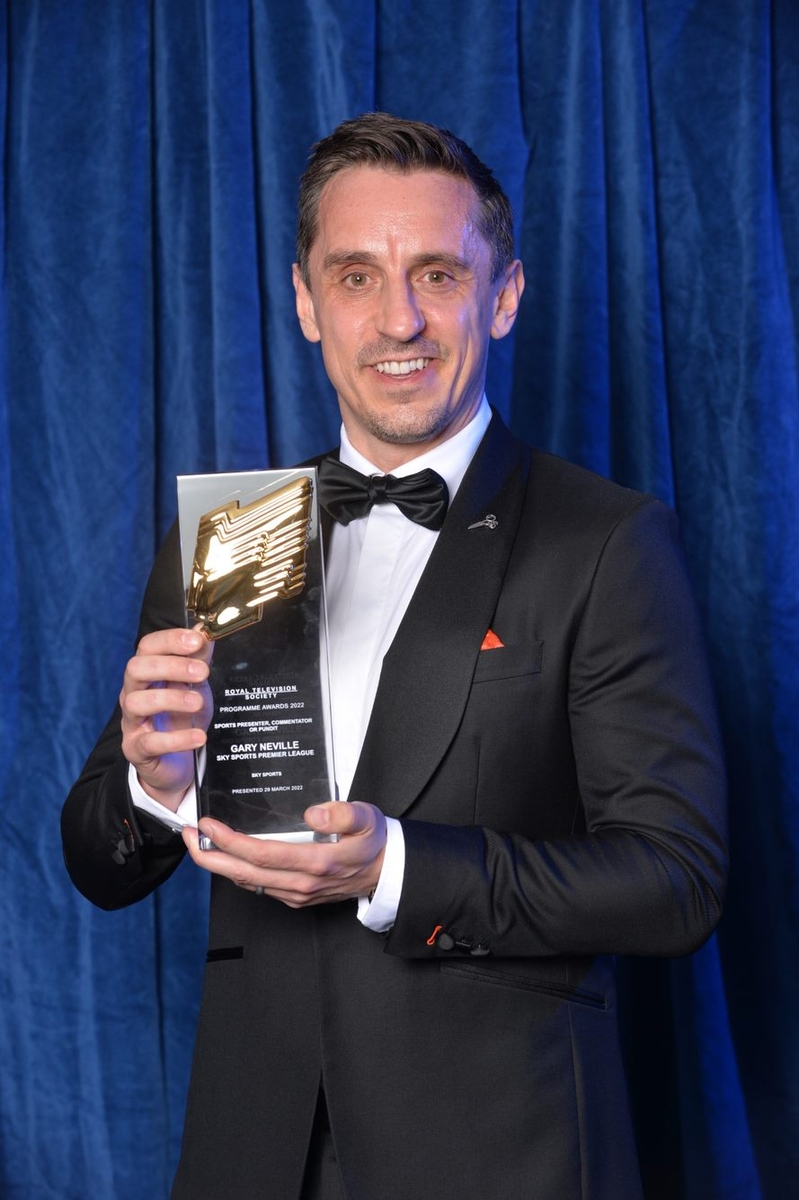
But partway through the first half, the producer came on his earpiece to break the news of a breakaway Super League. Twelve clubs, including six from the English Premier League, had reportedly signed up to a new mid-week, largely closed competition. The founding clubs would be permanent members.
“It was the final straw, in my belief, that football needed intervention,” says Neville. “I'd been disappointed with Bury FC going bust, with Project Big Picture, with the way the Premier League had delayed the rescue payment for League Two and League One clubs. And then this proposal comes forward which means that six of our greatest football clubs will essentially exit our league in some ways and create a utopia for themselves... I just blew up.”
Recognising the global significance of the story, the producer brought Neville back in at the end of the show, and for the next ten minutes he eloquently tore the plans to pieces. “It is an absolute disgrace,” he vented, “we have to wrestle back power in this country from the clubs at the top of this league, and that includes my club.”
A far cry from the nervous presenter who took to Monday Night Football a decade ago, Neville articulately and authoritatively captured the outrage of most fans. He was just one of many protesting - including fellow pundits, players, fans, football’s governing bodies, MPs and even the royal family - but given the platform, his voice was important.
By 20 April, the six English culprits had withdrawn and three more would follow suit, leaving only Real Madrid, Barcelona and Juventus to stand by the plans.
“My advice to anybody in football,” says Neville, “would be that if you're going to make a negative announcement, don't do it during Super Sunday or Monday Night Football. Unless you want an absolute battering.”

